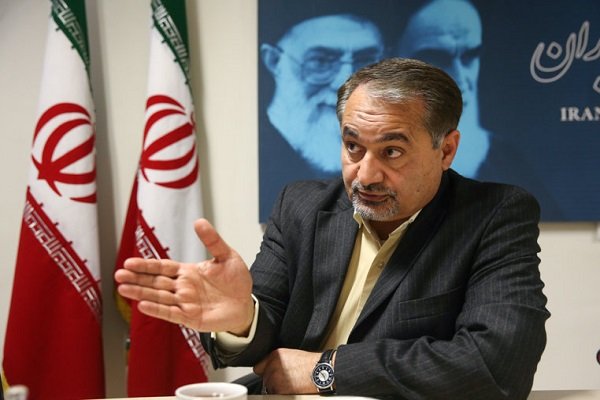US has not wiped out Iran's nuclear program because Iranians have the 'know-how': academic

TEHRAN - Former Iranian ambassador to Germany Seyed Mousavian, who was also part of Iran's nuclear diplomacy team with the UN in the 2000s, says U.S. strikes on major Iranian nuclear sites are only a small victory, ABC News reported.
Mousavian told 7.30 that while physical Iranian assets could have been destroyed as part of the U.S. so-called Operation Midnight Hammer, the nuclear "know-how" of Iranian scientists has not been.
After the initial Israeli strikes, the warring nations exchanged missile attacks before the U.S. president claimed the U.S. attacks caused the destruction of nuclear sites at Fordow, Natanz and Isfahan.
"Monumental Damage was done to all Nuclear sites in Iran, as shown by satellite images. Obliteration is an accurate term!" Trump had written on Truth Social.
Mousavian, an academic at Princeton University, questioned those claims and offered a warning.
"I don't know the extent of the damages, nobody knows," Mousavian told 7.30.
"There is a dispute in the U.S. ... but even if it is completely destroyed as President Trump has claimed repeatedly, even if it has been severely damaged, what was the objective? To destroy the facilities, building and utilities?
"But you cannot destroy the know-how.
"The know-how is there, how can you kill the know-how? Iranians, they have the technology and they can reconstruct anything.
"Whether that will take one month or five months or six months, it doesn't matter.
"They will not be able to destroy Iranian nuclear capability because Iranians, they have the knowledge."
Enriched uranium a 'bargaining chip'
Mousavian said Iran had only stockpiled 400 kilograms of uranium enriched to 60 percent as a "bargaining chip".
He blamed Trump for "killing" Iran's nuclear deal during his first term in the White House, in 2018.
"Iran was in full compliance for full three years," Mousavian said.
"The U.S. violated when Iran was in full compliance and the U.S. imposed the most comprehensive sanctions ever during the history against Iran.
"[The] sanctions and pressures by the U.S. made Iran increase the level and the capacity of its nuclear program for a bargaining chip in order to bring the U.S. to the table."
Mousavian said — citing knowledge from a source — that the 400 kilograms was central to negotiations right before Israel struck Iran.
"They agreed that the 400 kilograms would be either diluted or exported," he told 7.30.”
"There would be no danger or fear or concern about making 10 nuclear bombs there. The Iranian enrichment would go below 5 percent, which is civilian enrichment."
Mousavian said soon after this that Israel launched its first strikes, which have been supported by the U.S.
Like the U.S, Iran is a signatory to the Treaty on the Non-Proliferation of Nuclear Weapons (NPT).
Asked if Iran might now consider leaving that treaty, Mousavian said that would depend on the actions of the U.S.
"If the U.S. would respect the rights of Iran like other members of the non-proliferation treaty, Iran would stay," he told 7.30.
"Iran would never go for a nuclear bomb, like before, Iran would cooperate at the highest level of transparency and inspections."
He was then asked if a lack of U.S respect could mean the Islamic Republic pursues a nuclear weapon.
"If the U.S. is going to accelerate hostilities, wars, assassinations, terror and cyber attacks ... why should they not," he told 7.30.
7.30 then suggested that the comment sounded like "a threat", which elicited an impassioned response from Mousavian.
"It is American threat. It is Israeli threat," he said.
"Iran has been attacked. Israel attacked Iran, but now you are discussing about Iranian threat."
He then said Israel has nuclear weapons of its own.
Asked where the conflict moves to next, he said "everything depends on the US".
Leave a Comment